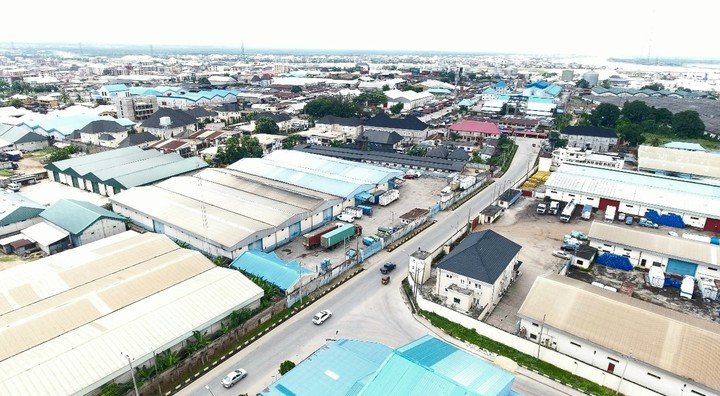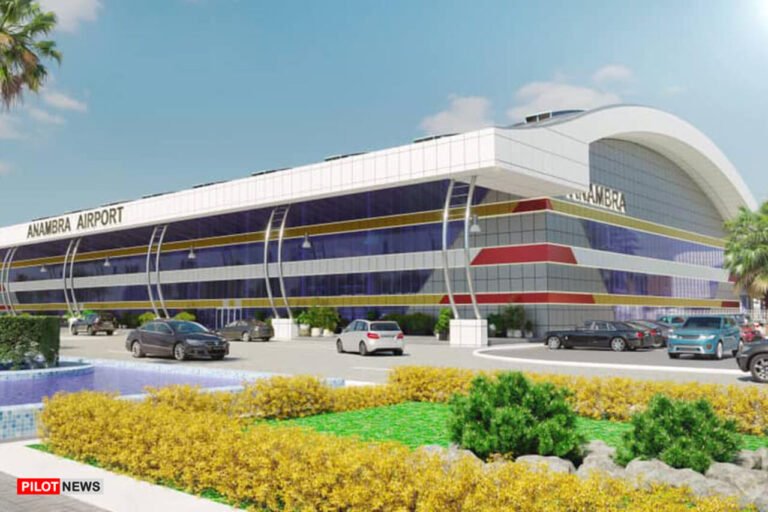Industrial Parks in Anambra State: Driving Economic Growth and Development
With a population of over 8 million people, Anambra is one of the most densely populated states in Nigeria. Its capital, Awka, and its commercial hub, Onitsha, play pivotal roles in the state’s economic landscape.
Anambra State is bordered by Delta State to the west, Imo State and Rivers State to the south, Enugu State to the east, and Kogi State to the north. This strategic location positions Anambra as a crucial gateway for commerce and trade between different parts of Nigeria. The state is well-connected by road networks, with the Niger River facilitating water transportation, especially through the bustling port city of Onitsha.
Importance of Industrial Parks
Industrial parks, also known as industrial estates or zones, are designated areas specifically planned and developed for industrial activities. These parks provide a conducive environment for manufacturing, processing, and other industrial operations by offering essential infrastructure, facilities, and services. Industrial parks are integral to regional and national economic development for several reasons:
- Economic Diversification: Industrial parks promote economic diversification by attracting a variety of industries, reducing dependency on a single sector.
- Job Creation: They generate employment opportunities, contributing to the reduction of unemployment and poverty.
- Foreign Direct Investment (FDI): Well-developed industrial parks attract FDI, bringing in capital, technology, and expertise.
- Infrastructure Development: The development of industrial parks drives improvements in infrastructure, including roads, power supply, and water systems.
- Increased Productivity: Clustering industries together leads to synergies, increased efficiency, and productivity gains.
- Economic Growth: Overall, industrial parks stimulate economic growth, enhance export potential, and improve the balance of trade.
Historical Context
Early Development of Industrial Parks in Anambra State
The concept of industrial parks in Anambra State dates back to the early post-independence era, when the Nigerian government sought to industrialize the economy and reduce reliance on oil exports. The establishment of industrial parks was seen as a strategic move to attract both local and foreign investments, create jobs, and foster regional development.
Key Milestones
- 1960s – 1970s: The initial efforts to industrialize Anambra State began in the 1960s and 1970s, with the creation of small industrial clusters. These clusters were primarily focused on light manufacturing and agro-processing industries.
- 1980s: The 1980s saw a more structured approach to industrial development with the establishment of the Onitsha Industrial Park. This park became a model for other industrial parks in the state, attracting numerous businesses involved in manufacturing, trading, and services.
- 1990s – Early 2000s: The expansion of industrial parks continued into the 1990s and early 2000s, with significant investments in infrastructure and facilities. The Nnewi Industrial Park emerged as a major hub for automotive and spare parts manufacturing, earning Nnewi the nickname “The Japan of Africa.”
- 2010s – Present: Recent years have witnessed renewed efforts to modernize and expand industrial parks in Anambra State. Government initiatives, public-private partnerships, and foreign investments have driven the development of new parks and the upgrading of existing ones.
Major Industrial Parks in Anambra State
Onitsha Industrial Park
Overview
Onitsha Industrial Park is one of the oldest and most significant industrial zones in Anambra State. Located in Onitsha, a city renowned for its commercial activities, this park has played a crucial role in the state’s industrialization journey.
Industries and Key Companies
The Onitsha Industrial Park hosts a diverse range of industries, including:
- Textile and Garment Manufacturing: Several textile and garment factories operate within the park, producing fabrics, clothing, and accessories.
- Food and Beverage Processing: The park is home to food processing companies involved in the production of snacks, beverages, and packaged foods.
- Chemicals and Pharmaceuticals: Various chemical and pharmaceutical companies have set up manufacturing plants in the park.
- Plastics and Packaging: The production of plastic products and packaging materials is another key industry within the park.
Infrastructure and Facilities
The Onitsha Industrial Park boasts well-developed infrastructure, including:
- Road Networks: Paved roads and transportation links facilitate easy movement of goods and raw materials.
- Power Supply: Dedicated power supply systems ensure uninterrupted electricity for industrial operations.
- Water Supply: Reliable water supply is provided to meet the needs of manufacturing processes.
- Warehousing and Storage: Ample warehousing and storage facilities are available for finished products and raw materials.
Nnewi Industrial Park
Overview
Nnewi Industrial Park, located in the industrial city of Nnewi, is another prominent industrial zone in Anambra State. Nnewi is known for its entrepreneurial spirit and has gained international recognition as a center for automotive manufacturing and spare parts production.
Industries and Key Companies
The Nnewi Industrial Park is dominated by the automotive and engineering sectors, with key industries including:
- Automotive Manufacturing: Nnewi is home to several indigenous automotive companies, producing cars, motorcycles, and auto parts. Notable companies include Innoson Vehicle Manufacturing Company, which produces a range of vehicles for the Nigerian market.
- Spare Parts Production: The park hosts numerous factories specializing in the production of automotive spare parts, catering to both local and international markets.
- Metal Fabrication: Metal fabrication companies in Nnewi produce a variety of products, including machinery, tools, and equipment.
Infrastructure and Facilities
The Nnewi Industrial Park offers state-of-the-art infrastructure and facilities, such as:
- Industrial Plots: Well-demarcated industrial plots with access to utilities and services.
- Transportation Links: Good road connectivity and access to logistics services.
- Power and Water Supply: Reliable power and water supply systems to support industrial activities.
- Training Centers: Technical and vocational training centers to develop skilled labor for the automotive and engineering sectors.
Awka Industrial Park
Overview
Awka Industrial Park, located in the capital city of Awka, is a relatively new but rapidly growing industrial zone in Anambra State. The park is part of the state’s broader strategy to diversify its industrial base and attract investments in various sectors.
Industries and Key Companies
The Awka Industrial Park hosts a mix of industries, including:
- Information Technology and Electronics: Companies involved in IT services, electronics manufacturing, and software development have established operations in the park.
- Agro-Processing: The park supports agro-processing industries, including food and beverage production, packaging, and distribution.
- Construction Materials: Factories producing construction materials such as cement, tiles, and roofing sheets are present in the park.
Infrastructure and Facilities
The Awka Industrial Park is equipped with modern infrastructure and amenities, including:
- Tech Hubs: Dedicated tech hubs and innovation centers to support IT and electronics industries.
- Agricultural Processing Zones: Specialized zones for agro-processing with access to agricultural produce and supply chains.
- Utilities: Consistent power supply, water resources, and waste management systems.
- Business Support Services: Access to financial services, business consultancy, and legal support.
Economic Impact
Job Creation
Industrial parks in Anambra State have been instrumental in creating employment opportunities for the local population. By attracting a wide range of industries, these parks provide jobs for skilled and unskilled workers, contributing to the reduction of unemployment rates. For instance, the Nnewi Industrial Park alone has created thousands of jobs in the automotive and spare parts manufacturing sectors.
GDP Contribution
The industrial parks significantly contribute to Anambra State’s Gross Domestic Product (GDP). The presence of diverse industries, from manufacturing to agro-processing, boosts the state’s economic output. According to recent data, industrial activities in these parks contribute over 30% to the state’s GDP, underscoring their importance in the regional economy.
Development of Local Businesses and Supply Chains
Industrial parks facilitate the development of local businesses and supply chains. By clustering related industries together, these parks create opportunities for small and medium-sized enterprises (SMEs) to thrive. Local suppliers, contractors, and service providers benefit from the demand generated by the industries within the parks, fostering a vibrant business ecosystem.
Statistics and Data
To illustrate the economic impact, here are some key statistics:
- Employment: Industrial parks in Anambra State employ over 100,000 people, directly and indirectly.
- Export Revenue: The parks contribute significantly to Nigeria’s export revenue, with products from Nnewi’s automotive industry and Onitsha’s manufacturing sector reaching international markets.
- Investment: Over the past decade, industrial parks in Anambra have attracted investments worth billions of naira, both from local and international investors.
Government Policies and Support
Role of Government Policies
The development and success of industrial parks in Anambra State are heavily influenced by government policies. The Anambra State government, in collaboration with federal authorities, has implemented various policies to support industrialization and attract investments.
Initiatives and Incentives
Several initiatives and incentives have been introduced to promote the growth of industrial parks, including:
- Tax Incentives: Tax holidays, reduced corporate tax rates, and import duty exemptions for machinery and raw materials.
- Infrastructure Development: Investments in infrastructure projects such as roads, power supply, and water systems to support industrial activities.
- Ease of Doing Business: Streamlining regulatory processes and reducing bureaucratic hurdles to make it easier for businesses to set up and operate within the parks.
- Financial Support: Access to credit facilities, grants, and subsidies for businesses operating in industrial parks.
Public-Private Partnerships
Public-private partnerships (PPPs) have been instrumental in the development of industrial parks in Anambra State. These partnerships bring together government resources and private sector expertise to create and manage industrial zones. Notable PPP projects include:
- Nnewi Automotive Industrial Cluster: A collaboration between the Anambra State government and private investors to develop a specialized automotive cluster in Nnewi.
- Onitsha Business Park: A joint venture between the state government and private developers to expand and modernize the Onitsha Industrial Park.
Challenges and Opportunities
Challenges
Despite the progress made, industrial parks in Anambra State face several challenges, including:
- Infrastructure Deficits: Inadequate infrastructure, particularly in areas such as power supply, transportation, and waste management, remains a significant challenge.
- Regulatory Issues: Bureaucratic red tape and inconsistent regulatory frameworks can hinder business operations and investment.
- Access to Finance: Limited access to affordable financing options for SMEs and startups can restrict growth and expansion.
- Skilled Labor Shortage: A shortage of skilled labor in certain industries, such as IT and engineering, can impact productivity and innovation.
Opportunities
Despite these challenges, there are numerous opportunities for the growth and development of industrial parks in Anambra State:
- Investment in Infrastructure: Continued investment in infrastructure, including renewable energy projects and modern transportation networks, can address current deficits and attract more industries.
- Technological Advancements: Embracing technological advancements, such as automation, artificial intelligence, and IoT, can enhance productivity and competitiveness.
- Market Expansion: Expanding into new markets, both domestically and internationally, can create new revenue streams and reduce reliance on traditional markets.
- Skilled Workforce Development: Investing in education and vocational training programs can address the skilled labor shortage and create a more capable workforce.
Case Studies and Success Stories
Innoson Vehicle Manufacturing Company
Overview
Innoson Vehicle Manufacturing Company, based in Nnewi, is a shining example of success within Anambra State’s industrial parks. Founded by Chief Innocent Ifediaso Chukwuma, Innoson is the first indigenous car manufacturer in Nigeria and has made significant strides in the automotive industry.
Achievements
- Local Production: Innoson manufactures a range of vehicles, including cars, buses, and trucks, with a high percentage of locally sourced materials.
- Job Creation: The company employs thousands of people, contributing to job creation and economic development in Nnewi and beyond.
- Export Market: Innoson has expanded its reach to international markets, exporting vehicles to countries in Africa and beyond.
Tiger Foods Limited
Overview
Tiger Foods Limited, located in the Onitsha Industrial Park, is a leading food processing company specializing in spices, seasonings, and food condiments. The company has grown from a small-scale operation to a major player in the Nigerian food industry.
Achievements
- Product Innovation: Tiger Foods is known for its innovative products, constantly introducing new and improved seasoning blends to the market.
- Market Leadership: The company has established itself as a market leader, with a strong presence in Nigeria and exports to other African countries.
- Community Engagement: Tiger Foods is actively involved in community development initiatives, including supporting local farmers and promoting sustainable agricultural practices.
Future Outlook
Potential Trends
The future of industrial parks in Anambra State looks promising, with several potential trends shaping their development:
- Green Industrial Parks: Emphasis on sustainability and environmental conservation will drive the development of green industrial parks that minimize ecological impact.
- Digital Transformation: The adoption of digital technologies, such as Industry 4.0, will revolutionize manufacturing processes and improve efficiency.
- Cluster Development: Continued focus on developing industry clusters, such as the automotive cluster in Nnewi, will enhance competitiveness and innovation.
- Foreign Investment: Increased foreign investment, driven by favorable policies and improved infrastructure, will boost industrial growth and economic development.
Upcoming Projects
Several upcoming projects are set to further enhance the industrial landscape in Anambra State:
- Awka Technology Hub: A state-of-the-art technology hub in Awka to attract IT and electronics companies.
- Expansion of Onitsha Industrial Park: Plans to expand and modernize the Onitsha Industrial Park to accommodate more industries and improve infrastructure.
- Renewable Energy Projects: Investments in renewable energy projects to provide sustainable power solutions for industrial parks.
Long-Term Economic Prospects
The long-term economic prospects for Anambra State’s industrial parks are bright. Continued investment in infrastructure, favorable government policies, and a focus on innovation will drive sustained economic growth. Industrial parks will continue to play a pivotal role in creating jobs, attracting investments, and enhancing the state’s economic competitiveness.
Conclusion
Industrial parks in Anambra State are key drivers of economic growth and development. From the historic Onitsha Industrial Park to the thriving Nnewi and emerging Awka Industrial Parks, these zones have transformed the state’s economic landscape. Through job creation, GDP contribution, and the development of local businesses, industrial parks have proven their significance in Anambra State’s economy.
Government policies and public-private partnerships have played a crucial role in supporting the growth of these parks. Despite challenges such as infrastructure deficits and regulatory issues, the opportunities for future growth and development are immense. Investment in infrastructure, technological advancements, market expansion, and skilled workforce development will shape the future of industrial parks in Anambra State.
Case studies of successful companies like Innoson Vehicle Manufacturing Company and Tiger Foods Limited highlight the potential for industrial parks to foster innovation and economic prosperity. The future outlook for industrial parks in Anambra State is promising, with upcoming projects and potential trends set to further enhance their impact.
In conclusion, industrial parks are not just centers of production and commerce; they are engines of economic transformation. As Anambra State continues to harness the potential of industrial parks, it is poised for a future of sustained economic growth, job creation, and industrial advancement.
References
- Anambra State Government. (2023). Anambra State Economic Development Strategy.
- National Bureau of Statistics. (2022). Nigerian Gross Domestic Product Report.
- Innoson Vehicle Manufacturing Company. (2023). Company Profile and Annual Report.
- Tiger Foods Limited. (2023). Corporate Social Responsibility Report.
- World Bank. (2021). Industrial Parks and Economic Development in Sub-Saharan Africa.
- Nigerian Investment Promotion Commission. (2022). Investment Opportunities in Anambra State.


